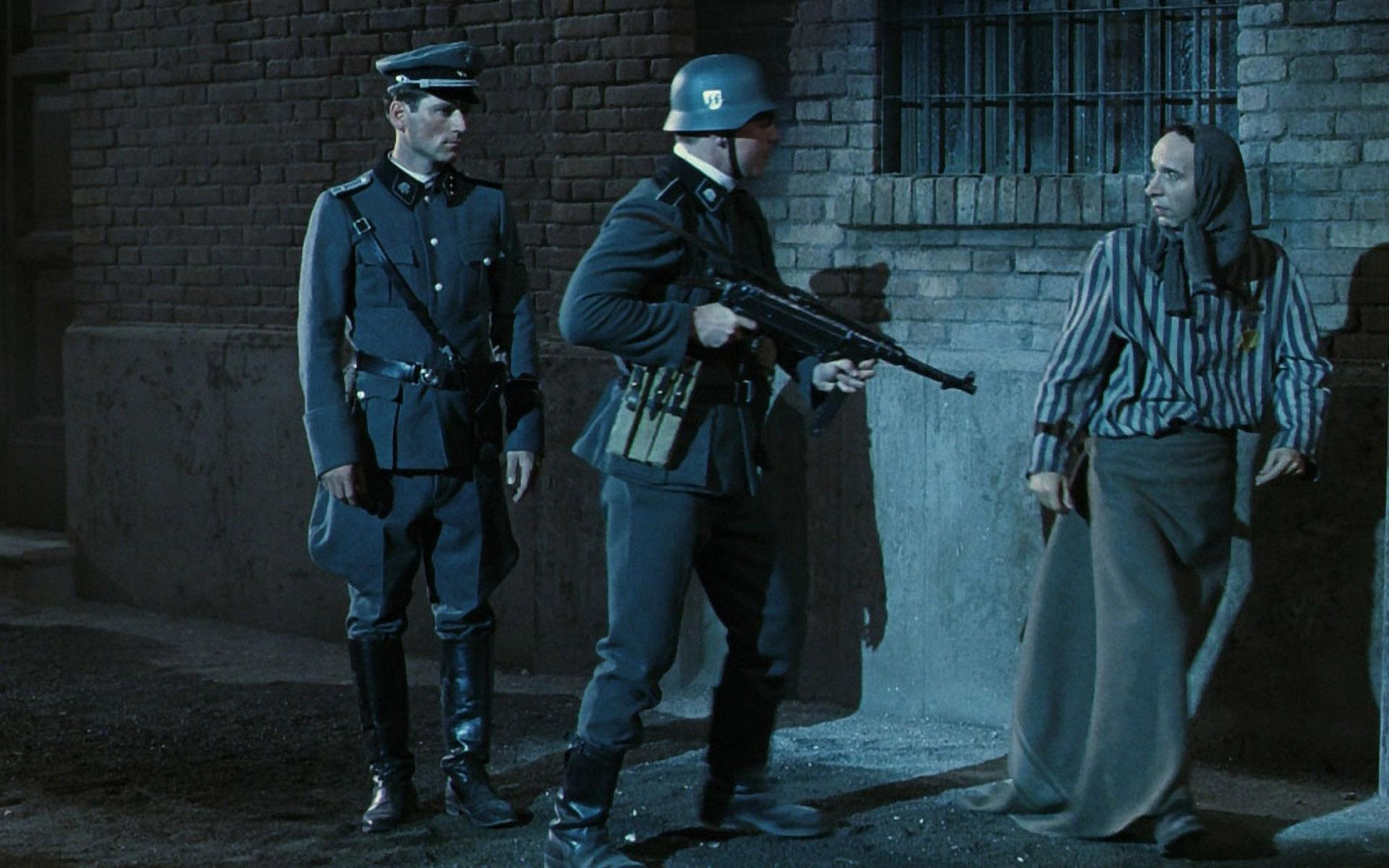We were tasked with writing our reviews on it:
I loved this movie. Straight of the bat the concept is very unique - a "holocomedy", what a disastrous but undeniably ballsy idea.
I think it paid off. Out of the gate the film proves its proof of concept by having the main characters drive through a Nazi parade and accidentally salute. The reason the movie works though, I think, is because it doesn't colour the war as anything that it wasn't. The events are all treated with respect and seemingly accurately represented. It is simply through the eyes of such a colourful and fun character that these situations become comedic and enjoyable.

One could say that if this character did exist he would have gone through the events depicted in the film, the same argument used by Tarantino for his WWII semi-comedy Inglorious Basterds (2009). I think that film could be seen as much more offensive than Life Is Beautiful because it does actually change major events of the war, but that film also isn't set within a concentration camp - it's played much further away from the true horrors of the holocaust.
The movie is unrealistic and comical though, with coincidences that would be very hard to see play out in real life, especially so frequently and in the life of one person. The film doesn't cheat where it counts though, the coincidences are for gags, the serious plot points all play by the rules, not making it overly easy on the character.
The character is almost perfect, which could be seen as a flaw. He is an unrealistically fun and charismatic man with no flaws and the inability to do wrong, yet we root for him throughout. His intentions are good and he's always fighting an uphill battle, a battle that he wins by consistently outsmarting his opposition and the unfair world which he occupies. It's an extremely talented underdog, its also a film told from his son's perspective, making it very possible that it is a subjective look at the man and not objective, a fictionalized and accentuated version of this man. Whatever it is, it's fun to watch. It could also be seen as an "angelic" story, where the main character doesn't change and instead changes those around him.

Robert Benigni starred, directed and co-wrote this film, for which he won an oscar for best acting as the film won the oscar for best foreign picture, I can't imagine how big his ego must have been after this, especially after getting such critical acclaim for portraying a man with virtually no faults.
The film reminds me a lot of the films by Buster Keaton or Charlie Chaplin, one man walking through the world and making it entertaining. This is a genre that was very popular during the silent era and hasn't seen much re-visitation since. This is an excellent example of that type of film working to the best of its ability, being extremely similar to the tone of Charlie Chaplin's mixture of drama and comedy in films like The Kid (1921). Since I think properties like Mr. Bean has touched on that style but I think Life Is Beautiful might be the best of example of how it can be used extremely effectively.

While I was watching it I did realize that this is the type of film I would love to see in theaters as well, crazy that it released the same year as Titanic. These movies capture a magic of what its like to go out and experience a movie at the theater. It's filled with romanticism and magical moments that are few and afr in-between in real life that makes it feel almost like a fairy tale (like the love of his love falling into his arms upon first meeting or when he plays music for her in the concentration camp). One of the best things of this movie, that Titanic also does, is its relentless pacing, it tells its story and once it starts it doesn't stop, always entertaining and the hours fall away without the audience even noticing.
Admittedly the two halves of the movie feel very different, the weird thing is I actually found myself closer to crying during the extreme positive emotion found in the first half. During our break in the middle I was sure I would be bawling by the credits knowing how the movie plays out, it is odd then that I found myself much less emotionally worn by the end of the second half.
Maybe it's just that sad stuff isn't as sad as when not contrasted with happy stuff, I thought there might have been a flash back at the end of the film of when the father was still alive, a poetic clip of their family life we never got to see, but there wasn't. If there was I'm sure I would have shed a tear and that's probably the only thing I would personally alter about the film. Everything else is neat, tight and very well made. It's one of those movies that makes me feel like I should just quit film-making right now because I would never reach the peaks that this film has an therefore there is no use in trying anymore (others like this are Titanic and La La Land).
No comments:
Post a Comment